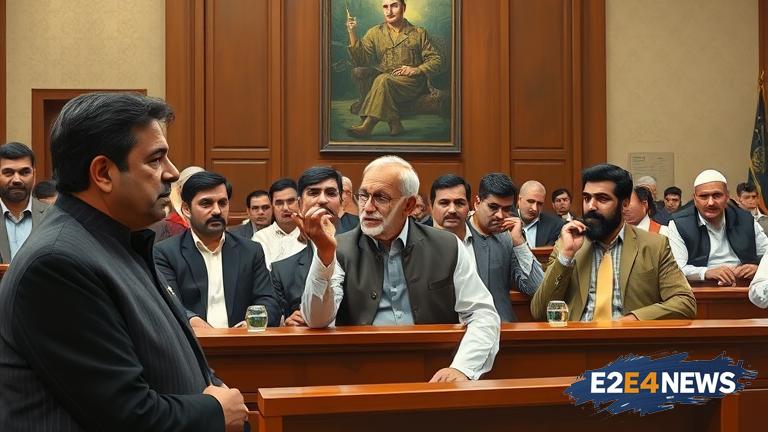The Khyber Pakhtunkhwa Assembly has been embroiled in a controversy after MPAs elected on reserved seats refused to take their oath for the second time. This move has sparked a heated debate in the region, with many questioning the motives behind this decision. The MPAs, who were elected on reserved seats for women and minorities, had initially refused to take their oath during the first session of the assembly. At that time, they had cited various reasons for their refusal, including concerns over the allocation of reserved seats and the overall political climate in the province. However, despite efforts by the provincial government to address their concerns, the MPAs have once again refused to take their oath. This decision has been met with widespread criticism, with many accusing the MPAs of being irresponsible and neglecting their duties. The opposition parties have also jumped into the fray, accusing the ruling party of failing to address the concerns of the MPAs and create a conducive environment for them to take their oath. The Khyber Pakhtunkhwa government has tried to downplay the situation, stating that the MPAs are entitled to their opinions and that the government is willing to engage in dialogue to resolve the issue. However, the situation remains tense, with many fearing that the refusal of the MPAs to take their oath could lead to a constitutional crisis in the province. The reserved seats for women and minorities are an important aspect of the provincial assembly, and the refusal of the MPAs to take their oath has raised questions about the representation of these groups in the assembly. The Khyber Pakhtunkhwa government has been accused of failing to ensure the proper representation of women and minorities in the assembly, and this latest development has only added to the criticism. The MPAs who have refused to take their oath have stated that they will not back down until their demands are met, and this has raised concerns about the potential for further conflict in the province. The situation is being closely watched by the federal government, which has urged the Khyber Pakhtunkhwa government to resolve the issue amicably. The Khyber Pakhtunkhwa Assembly has been summoned to meet again, and it is expected that the issue of the MPAs’ oath will be taken up during the session. The opposition parties have announced that they will raise the issue in the assembly and demand that the government take concrete steps to address the concerns of the MPAs. The Khyber Pakhtunkhwa government has stated that it is willing to engage in dialogue with the MPAs and find a solution to the issue. However, the situation remains uncertain, and it is unclear how the issue will be resolved. The refusal of the MPAs to take their oath has also raised questions about the overall political stability of the province. The Khyber Pakhtunkhwa government has been facing criticism for its handling of various issues, and this latest development has only added to the pressure on the government. The federal government has urged the Khyber Pakhtunkhwa government to take steps to ensure the stability of the province and address the concerns of all stakeholders. The situation in Khyber Pakhtunkhwa is being closely watched by the international community, which has expressed concerns about the potential for conflict in the region. The Khyber Pakhtunkhwa government has stated that it is committed to ensuring the stability of the province and addressing the concerns of all stakeholders. However, the situation remains tense, and it is unclear how the issue will be resolved. The MPAs who have refused to take their oath have stated that they will continue to fight for their rights and ensure that their voices are heard. The Khyber Pakhtunkhwa government has been accused of failing to address the concerns of women and minorities in the province, and this latest development has only added to the criticism. The situation is a complex one, with many different factors at play. The Khyber Pakhtunkhwa government will need to find a solution to the issue that addresses the concerns of all stakeholders and ensures the stability of the province.
